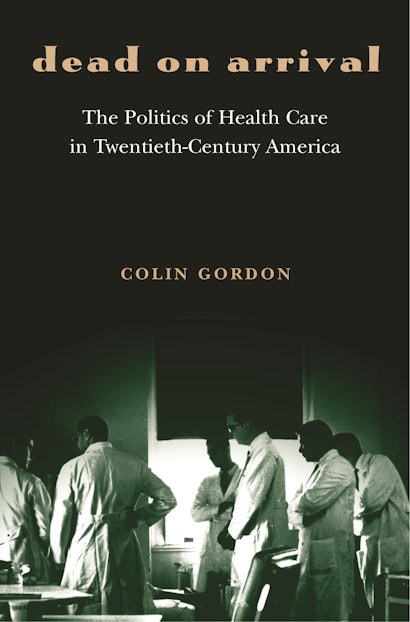Dead on Arrival: The Politics of Health Care in Twentieth-Century America


Paperback
- Price:
- $47.00/£40.00
- ISBN:
- Published:
- Dec 5, 2004
- Copyright:
- 2003
- Pages:
- 336
- Size:
- 6 x 9.25 in.
- Main_subject:
- History
ebook
Why, alone among industrial democracies, does the United States not have national health insurance? While many books have addressed this question, Dead on Arrival is the first to do so based on original archival research for the full sweep of the twentieth century. Drawing on a wide range of political, reform, business, and labor records, Colin Gordon traces a complex and interwoven story of political failure and private response. He examines, in turn, the emergence of private, work-based benefits; the uniquely American pursuit of “social insurance”; the influence of race and gender on the health care debate; and the ongoing confrontation between reformers and powerful economic and health interests.
Dead on Arrival stands alone in accounting for the failure of national or universal health policy from the early twentieth century to the present. As importantly, it also suggests how various interests (doctors, hospitals, patients, workers, employers, labor unions, medical reformers, and political parties) confronted the question of health care—as a private responsibility, as a job-based benefit, as a political obligation, and as a fundamental right.
Using health care as a window onto the logic of American politics and American social provision, Gordon both deepens and informs the contemporary debate. Fluidly written and deftly argued, Dead on Arrival is thus not only a compelling history of the health care quandary but a fascinating exploration of the country’s political economy and political culture through “the American century,” of the role of private interests and private benefits in the shaping of social policy, and, ultimately, of the ways the American welfare state empowers but also imprisons its citizens.